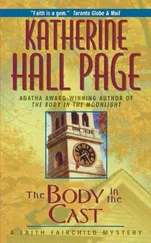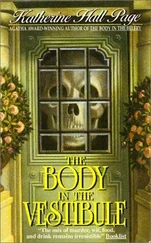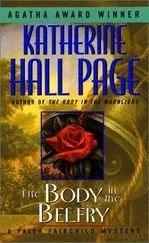The organist began to play the first hymn. Everyone stood up. Tom mounted the pulpit and they began to sing, “Where ancient forests widely spread.” By the time they got to “Till death the gates of heaven unfold,” Faith knew she was depressed. Dear God, how she hated funerals.
It got better when Tom began to speak and there was comfort in the familiar words of the service. He was reading from John, “In my Father’s house are many mansions.” To comfort the bereaved—that was the whole point of the service.
Nelson had pulled himself together and was sitting dry-eyed in the front pew, close to the casket. There was a large basket of flowers on top with a few small artificial birds perched on the sprays of inevitable gladioli. Nelson was flanked by the Scotts. Louise’s nose was bright red and she seemed closer to breaking down than the next of kin. Nelson squeezed her hand, which only served to start the tears again. Faith thought of Amy’s reaction to Nelson in the woods.
The poor man seemed to be better at provoking tears than stanching them lately.
They read Psalm 104 responsively. Tom had done a good job, and it was filled with birds. Some ancient pro-genitor of Margaret’s, with a life list in hand, may well have authored it—at the very least, a kindred spirit: The trees of the Lord are full of sap; the cedars of Lebanon, which he planted.
In them the birds make their nests; as for the stork, the fir trees are her house.
Faith began to feel uneasy. She was having trouble concentrating. Church sometimes had this effect on her. What was Margaret doing in the new house?
What was Margaret doing in the woods?
Let the sinners be consumed from the earth, and let the wicked be no more.
Bless the Lord, O my soul!
Praise the Lord!
She was jolted from her thoughts but not her anxi-ety. Tom’s voice, as he read the last verse, had assumed a totally different quality. He was not just stern but angry. Suddenly, everyone in the church was reminded of the way Margaret died. And the sinner still walked among them.
Tom’s homily touched upon Margaret’s love of nature and service to the community. He spoke of the deep sorrow that inevitably follows when a life is cut off before its time and the test this presents for one’s faith. Faith, his wife, heard him and took the words literally—as a challenge.
The last hymn was one of those that changed key frequently, making it difficult to sing, and by the third verse only Tom and a few other diehards were trying.
Everyone else came in for the “Amen” and then trooped out into the rain to the cemetery.
The cemetery next to the church had long since filled up and now it was mostly visited by those interested in Aleford history and earnest souls who found delight in hanging rubbings with pithy epitaphs such as “Death is a debt, to Nature due,/I’ve paid the debt, and so must you” on their walls. The new cemetery, dedicated shortly after the Civil War, was across town.
As need arose, the grounds had been extended, and it was like a large park, a park with headstones. The heavy carpet of moss and abundance of willows lent a suitably doleful air to the surroundings. On most days it was a pleasant walk from First Parish, but not today.
Faith got into Pix’s car and they joined the cortege. It wasn’t a very long one.
There were even fewer people than had been at the church and they clustered together, umbrellas overlapping, trying to keep dry. The tree trunks were streaked with black and beneath the leafless branches the ground was a sea of mud. The wind was picking up. The people from the funeral home had quickly gotten back into the hearse after depositing the casket. Tom struggled to hold both his prayer book and umbrella until Faith came to his rescue, shielding him from the elements with her large umbrella.
Giving her a grateful look, he started the service with Shelley’s poem, and never had “Hail to thee, blithe spirit!” seemed more inappropriate. Tom perse-vered. Faith had forgotten how long the ode was. By the time he got to:
Teach me half the gladness
That thy brain must know;
Such harmonious madness
From my lips would flow,
The world should listen then, as I am listening now.
Faith’s feet were soaked and the arm holding the umbrella had gone to sleep.
“Earth to earth, ashes to ashes, dust to dust . . .” Tom dropped a handful of dirt on top of the casket as his deep voice, so well suited to his calling, repeated the familiar words. Familiar words, yet however often Faith heard them, they always produced the same effect on her. A door was being shut. Another one might be opening, but this life was over. When were you ready? Sixty, eighty, a hundred? Never? Margaret hadn’t been ready. Margaret had been denied all thought at the end. It was horrible.
Faith heard the mourners start, “Our Father,” and she joined in. Margaret Batcheldor’s funeral was over.
Pix dropped her off at one o’clock and Faith immediately called Lora to tell her she was on her way over to pick up Ben. Lora ran an extended day program twice a week and this had fortunately been one of the days.
As Faith hurried down the stairs into the church base-ment, where the nursery school was located, she realized that of course no one from the Deane family, nor any of their friends, had attended Margaret’s funeral.
Faith had half-expected Gus to show up. It was the kind of thing he did. Lest anyone have any doubts.
What kind of murderer would go to the victim’s funeral? she could almost hear him say. But perhaps his wife had encouraged him to stay home. Lillian didn’t like the spotlight. Perhaps he hadn’t thought to go at all. And it wasn’t true, Faith thought. About murderers. They often did go to their victim’s funerals—out of bravado, or to make sure the deed was well and truly done. Maybe remorse?
It had been a small group back at the Batcheldors’
house. The rain was still coming down hard, and even with all the lights turned on, the atmosphere was gloomy. They lived in a small stone Arts and Crafts–
style cottage that had been built in the twenties. Today the stone walls and small-paned windows did not seem cozy. The Scotts were there, acting as hosts, keeping everyone supplied with sherry and, yes, those sandwiches. Millicent grabbed Pix and, as Pix reported later, filled her in on what would be presented at tonight’s POW! meeting. Charley MacIsaac sat morosely in a bare wood Stickley-type chair next to Nelson. Charley was not drinking sherry; he had managed to find something quite a different color that filled half a tumbler. He was avoiding the sandwiches, too.
Conversation tended toward the repetitive: “I can’t believe she’s gone.” “She was a very special person.” No one mentioned the fire. No one mentioned the time of night.
“Mom, hey, Mom, look what I made!” Ben tackled her, effectively pulling her into the present tense.
“He is so talented, Faith. I think you may have a real artist here,” Miss Lora said seriously. “He is unusually gifted.” She was holding a dripping-wet painting. It looked like a rainbow done by a nearly five-year-old child. Faith took a chance.
“What a beautiful rainbow, sweetheart. When it dries, we can take it home and put it up on the fridge.”
“Oh, Mom, it’s not a rainbow. See the legs? It’s a zebra from Magic Land and here’s the boy who rides him in the sky and here’s . . .”
Swearing for the ninety-ninth time that she would never guess what a child had drawn until given either an extremely obvious hint or the answer, Faith managed to get Ben away without the painting by explaining the rain might damage it. This made sense to both Ben and Miss Lora, who was as insistent that the mas-terpiece grace the Fairchild home as soon as possible as Ben had been.
Читать дальше












